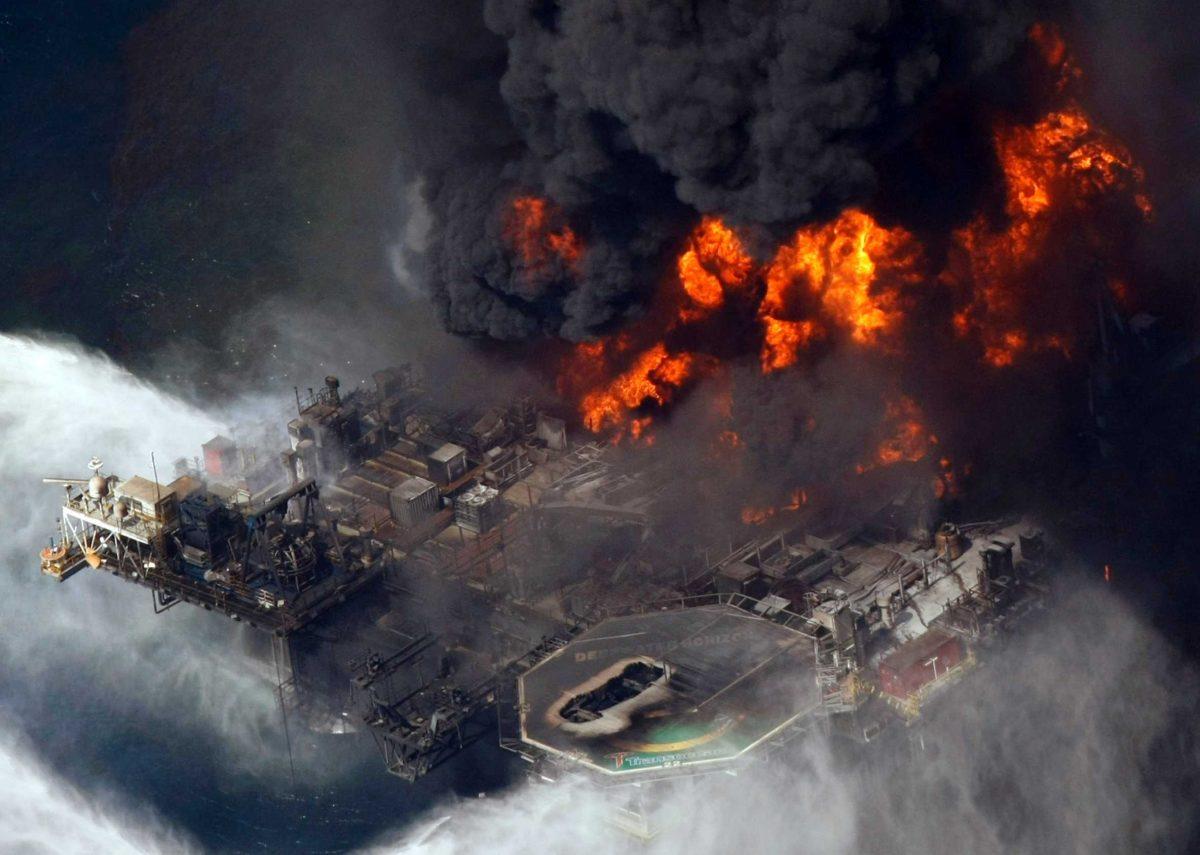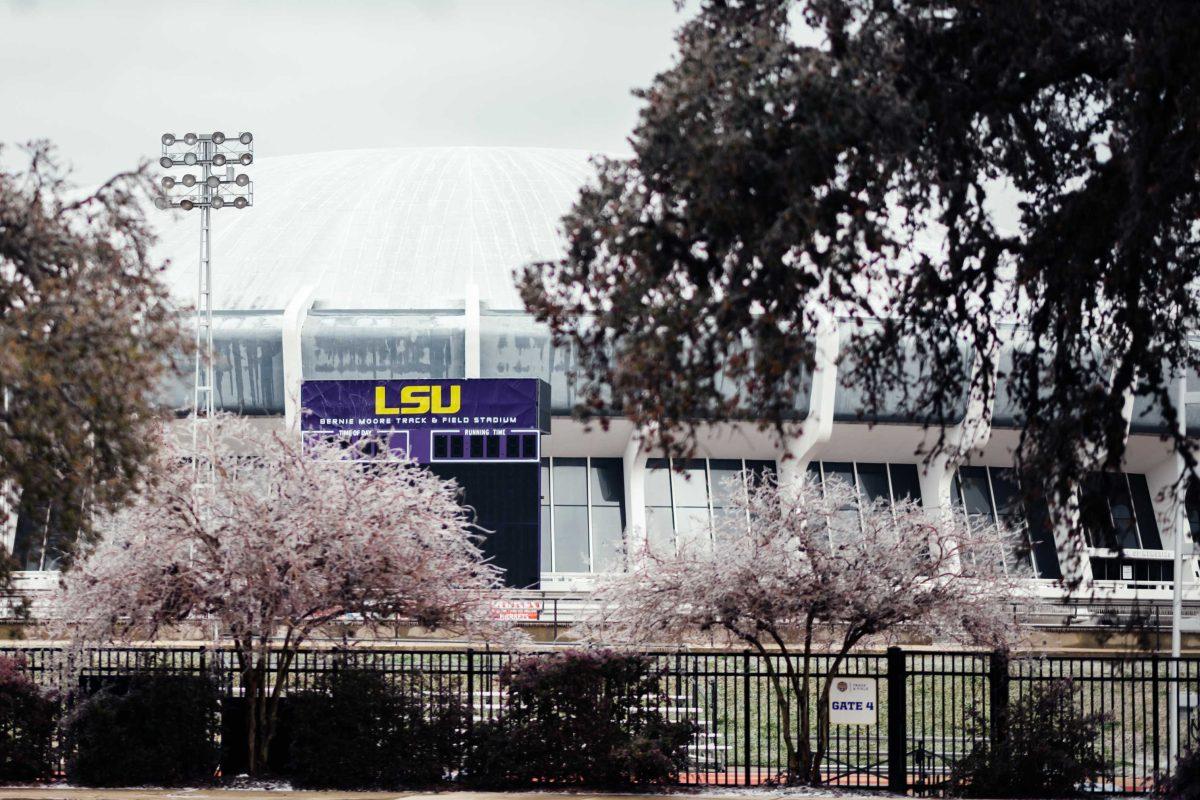To see lsureveille.com’s coverage of the Gulf of Mexico Oil Spill, click here.
Few foresaw the devastation to follow when the BP Deepwater Horizon oil-drilling rig exploded two weeks ago.But the Gulf Coast could feel the incident’s effects for years to come, and many people, including University students, are trying to find ways to help.The Deepwater Horizon exploded around 10 p.m. on April 20. One hundred and twenty-six people were aboard, and 11 were missing after the explosion. Seventeen were injured in the accident.The U.S. Coast Guard announced three days after the explosion rescuers were no longer searching for survivors.The rig sank two days later, and the U.S. Coast Guard originally said no oil was leaking from the undersea well at the site of the explosion. The next day, oil was found to be leaking at about 42,000 gallons per day.Gov. Bobby Jindal issued a declaration of emergency on April 29, nine days after the explosion.President Obama traveled to the coast Sunday and spoke about the disaster. He assured residents the oil spill has the government’s attention and officials will continue to respond.Crews began attempting to contain the spill shortly after the explosion using booms — malleable materials used to fence in oil. The Coast Guard laster set fire to the oil to lessen what would wash ashore.The cause of the explosion hasn’t been released by authorities.THE EFFECTSMichael Kaller, School of Renewable Natural Resources assistant professor, said it’s impossible to know what kind of effect the oil will have on the environment and economy right now.”Right now the major effect is that the fisheries are shut down,” Kaller said. “Ecologically, we’re still not sure — the worst part of the oil spill is still offshore.”Kaller said some places have been devastated by oil, while others still seem unaffected. He said the effects can be minimal if a body of water is exposed to oil for a short time.”The two big questions right now are how much is exposed and for how long,” he said.Kaller said he’s certain the government and fisheries will prevent people from consuming any fish exposed to oil. Organizations will constantly monitor fish for exposure and food distributors will be alerted to avoid tainted fish, he said.He said he’s unsure how the spill will affect the fishing industry and the economy. Commercial fisheries are seasonal and only harvest during certain times of the year, he said.”If the fisheries are closed for even a small amount of time, the effect it will have on the industry will be significant,” he said.Craig Westerman, a member of the Disaster Science and Management Association, said the oil spill will affect the seafood industry for years. He said he believes the government would be forced to eventually implement some kind of regulations such as where people can fish, how much they can catch and what they can catch. Westerman said based on when crews can stop the leaks and what methods they use, it will take years for organizations to completely rid the water of oil — if ever.HOW STUDENTS CAN HELPMembers of several student organizations created the Facebook group “LSU SCHOLR (Student Coalition to Help the Oil Leak Relief)” to provide students with up-to-date information and a forum to discuss events and volunteer opportunities. SCHOLR is working with DSMA to organize volunteers. Jonathan Carpenter, SCHOLR president, said he’s found hundreds of students interested in getting involved in relief efforts despite the disaster occurring so close to finals week.”It’s a bad time right now because everyone is so crazy with finals, but after that everything should get a lot easier,” he said.Carpenter said his group is constantly growing, and he thinks it’s a good way to get students involved. The group has helped involve student organizations like ECO and the Student Wetland Society, he said.The Office of Research and Economic Development sponsored the LSU Gulf Coast Oil Spill Research Forum on Tuesday to get faculty and students together and discuss recent events.Doris Carver, interim vice chancellor of the Office of Research and Economic Development, opened the forum.Carver said she thought it would be a good way for faculty to share their ideas with each other and potentially collaborate on projects to aid the government response to the spill.Lauren Mauser, DSMA president, and Carpenter both said their organizations have been working to obtain hazardous materials training for volunteers at little to no cost. There are currently response centers in Pensacola, Fla.; Venice, La.; Mobile, Ala.; and Pascagoula and Biloxi, Miss.—-Contact Rachel Warren at [email protected]
Long-term effects of oil spill expected, uncertain
May 4, 2010







